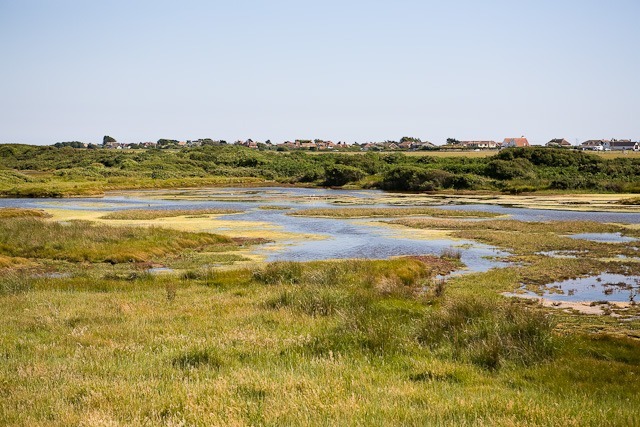
This article appears in the Witness section of the autumn 2020 issue of the New Humanist. Subscribe today.
Around the world, the amount of farmable land is shrinking. Up to one third of it has already been lost to soil degradation and erosion. With climate change and rising seas, land is drying out, which raises salt levels in the soil.
This is a problem. Salt has long been the enemy of farmers. Once it is in the soil, it is difficult and costly to remove, and it is estimated to cause over £20 billion of crop loss globally each year. One solution may be salt-tolerant crops, which can grow in salty water, or even in floating farms directly in the ocean. These could either be naturally salt-tolerant crops, or they could be gene edited for their new environment.
Most plants would be killed by salt water irrigation, but there are a few that would thrive. One company taking the natural approach is Seawater Solutions in Scotland, which is creating wetland ecosystems in which to grow samphire and sea astor. They currently run six marsh farms and have begun work on creating one in the middle of a desert in Malawi, tapping underground saltwater aquifers. They aim to cover a quarter of a million hectares within five years.
Using wetlands and salt marshes has the added benefit of avoiding some of the environmentally destructive impacts of conventional agriculture, such as the clearing of forests. Herbs like samphire help hold soil in place, preventing erosion. However, samphire and sea astor are hardly staple foods, and not everybody will want to introduce such unusual ingredients to their plates.
This is where gene-edited crops come in. A Canadian start-up, Agrisea, has filed for a provisional patent to use CRISPR gene-editing technology in order to grow plants in salty seawater without the need for pesticides or fertiliser. They are currently working to grow rice plants in water that is one-third of the salinity of seawater, with plans to open floating farms off the shores of Kenya and Grand Bahama Island within the year.
Crops growing at scale in sea-flooded plains or anchored in seas and oceans could help tackle agriculture’s enormous carbon footprint. Seawater Solutions claims that carbon is captured by their wetlands at a rate of up to 40 times higher than the same area of rainforest.
As we confront the unpredictable effects of climate change, and the prospect of dwindling arable land, such innovative approaches are badly needed in order to ensure food security. After generations of industrial farming, salt crops could give the world’s soil a much-needed break.

